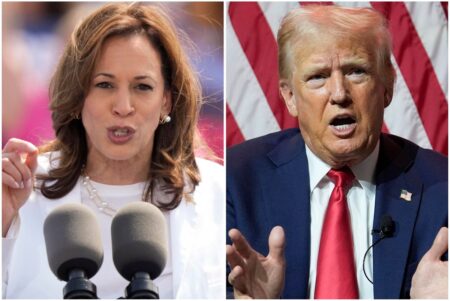Navigating the banking environment can be intimidating. With so many different types of accounts available, it’s important to understand the specific features, benefits and drawbacks of each to make the most informed decision.
Two types of accounts that often cause confusion are money market accounts (MMAs) and checking accounts. Although they appear alike, they have different functions and benefits.
Here’s a rundown of the differences and similarities between these accounts to help you decide which one is best for you.
What’s the difference between a money market and a checking account?
Learning the differences between a money market account and a checking account can help you manage your finances effectively. Each account caters to different needs and offers unique features that can be beneficial depending on your financial objectives.
What is a money market account?
A money market account is a type of deposit account offered by banks and credit unions. It has a blend of savings and checking account features. Like a savings account, a money market account earns interest over time, typically at a higher rate than a standard savings or checking account.
However, unlike a traditional savings account, a money market account often comes with check-writing privileges and a debit card, which gives you more flexibility to access your funds. Still, it’s worth noting that withdrawals and transactions are usually limited to a certain number per month.
The best money market accounts offer more than 5 percent APY. This is well above the national average, which is 0.46 percent APY as of this writing.
What is a checking account?
A checking account, on the other hand, is a type of bank account designed for regular transactions. This is the account you would typically use for daily expenses, paying bills and receiving your paycheck. Checking accounts usually come with a debit card, paper checks and unlimited transactions, including deposits, withdrawals and transfers.
“Almost every individual should have a checking account in today’s environment,” says John Jones, an investment advisor representative with Heritage Financial in Newberry, Florida. “These operate for most as a cash flow account where income is deposited and savings, investments, credit cards, loans and expenses are withdrawn.”
While some checking accounts earn interest, the rates are usually much lower than those of money market accounts. However, the primary advantage of a checking account is its high liquidity and unlimited transactions, making it ideal for day-to-day use.
The best checking accounts offer above 2 percent APY. This is higher than the national average, which is 0.08 percent APY as of this writing.
Pros and cons of a money market account
Money market accounts offer several benefits, such as higher interest rates compared to regular savings or checking accounts, access to your funds through checks or a debit card and often safety through Federal Deposit Insurance Corp. (FDIC) or National Credit Union Association (NCUA) insurance.
However, money market accounts come with a few drawbacks as well. These include a potential limit on the number of monthly transactions, higher minimum balance requirements compared to other accounts and potential monthly service fees if the minimum balance isn’t maintained.
Pros and cons of a checking account
Checking accounts are ideal for daily transactions. They provide easy access to your funds with a debit card and checks, typically offer unlimited transactions and some offer rewards or interest. However, the interest rates are generally much lower than those on money market or savings accounts.
Also, some checking accounts may require a minimum balance to avoid service fees, and they may charge for certain services like using out-of-network ATMs or overdrafts.
How to choose a money market and checking account
Selecting the right account is an important step in managing your money effectively and meeting your financial goals. Both money market and checking accounts offer unique advantages, but their benefits can only be maximized if they align with your financial needs.
“Determining the right account depends on your financial goals and spending habits,” says Abid Salahi, co-founder of FinlyWealth. “It’s important to consider each financial institution’s specific terms and conditions when choosing between a money market account and a checking account.”
Here’s what to consider when opening these accounts.
What to look for when opening a money market account
When considering a money market account, look for one with a high interest rate, low fees and a reasonable minimum balance requirement that fits with your financial situation. Also, consider your banking habits. If you plan to make frequent transactions, a money market account may not be the best choice due to transaction limits.
What to look for when opening a checking account
When opening a checking account, consider your daily banking needs. Look for an account with low or no monthly fees, a wide network of ATMs and good customer service. If you keep a high balance in your checking account, you might also want to look for an account that offers interest or rewards. Finally, convenience features like mobile banking, online bill pay and direct deposit can make managing your money easier.
How does a money market account compare with a savings account and CD?
A money market account is similar to a savings account in that both earn interest and are subject to transaction limits. However, a money market account usually offers a higher interest rate and comes with check-writing privileges and a debit card, unlike most savings accounts.
Compared to a certificate of deposit (CD), a money market account offers more flexibility because you can access your money without penalty, whereas a CD requires you to leave your money untouched for a set period of time. However, CDs typically offer higher interest rates than money market accounts.
“We often tell clients who are only looking to invest money for a year or two to consider a money market account or CD,” says Bill Gallagher, a certified financial planner and senior planner at Zynergy Retirement Planning.
“They’re dependable but offer lower returns than a diversified portfolio of stocks, bonds, real estate and cash. CDs and high-yield savings accounts are similar in that they’re protected from market fluctuations.”
Bottom line
Choosing between a money market account and a checking account depends on your individual financial needs. If you’re looking for a place to store funds that you don’t need to access frequently, and you want to earn a higher interest rate, a money market account could be a good fit.
If you need an account for daily transactions with easy access to your funds, a checking account might be a better choice. Whichever you choose, always be sure to understand the account’s terms and fees before you make a decision.
FAQ
-
A money market account could be a good choice if you’re looking for a place to keep money that you don’t need immediate access to. It’s also a good choice if you want to earn a higher interest rate than a regular savings or checking account can offer. Another reason to consider a money market account is if you want to write checks or use a debit card directly from the account but don’t plan to do so frequently.
-
Both money market and checking accounts are protected. They’re backed by the Federal Deposit Insurance Corporation (FDIC) in banks and the National Credit Union Administration (NCUA) in credit unions, making them a secure choice for your finances. Even if the financial institution fails, your money is protected up to $250,000.
-
Yes, the interest you earn from a money market account is subject to taxes. It’s considered income and must be reported on your annual tax return.
-
While their names are similar, a money market account and a money market fund are quite different. A money market account is a deposit account provided by banks and credit unions that allows you to earn interest.
A money market fund, on the other hand, is a type of mutual fund that invests in highly liquid near-term instruments like cash and cash equivalent securities. While money market accounts are insured by the FDIC or NCUA, money market funds are not, meaning they carry a higher level of risk.
Read the full article here
















